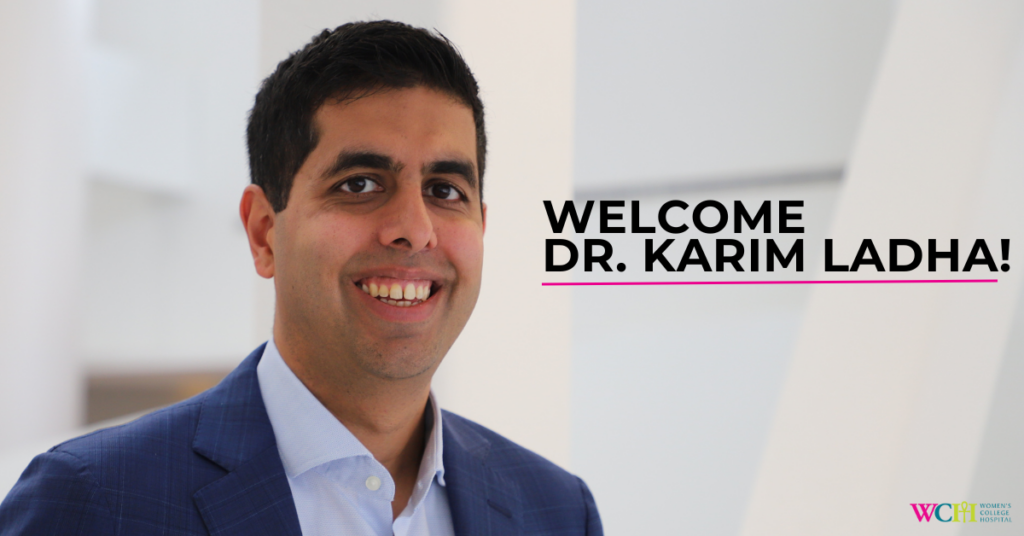After an extensive international search, Dr. Karim Ladha has newly joined Women’s College Hospital as the Evelyn Bateman Recipe Chair in Ambulatory Anesthesia and Women’s Health. This role was established to advance excellence in anesthesia research.

Dr. Ladha joins WCH with a wealth of experience as an anesthesiologist and clinician-scientist at the University of Toronto. He leads a diverse research program and conducts innovative studies including the use of anesthetic interventions to target mental health conditions and the impact of psychosocial factors in perioperative medicine. Welcome, Dr. Ladha!
Q&A with Dr. Ladha
1. What is your area of research?
My area of research is influenced by my clinical work as an anesthesiologist and chronic pain physician. While there are a wide range of topics that we study, I typically break it down into three areas:
- Studying acute and chronic pain.
- Examining the use of anesthetic agents to treat mental health conditions.
- Understanding the impact of psychosocial factors on perioperative outcomes. As a result, the projects we undertake are diverse. For example, we are in the process of finishing a trial that used nitrous oxide (also known as ‘laughing gas’) for treatment resistant depression and at the same time completing a study looking at the impact of surgical complications on future income earnings.
2. What does your typical day look like?
One of the things that I love most about my job is that there is no such thing as a typical day. Some days, I am at my desk in meetings or writing grants and papers. Other days, I am in the operating room delivering anesthetic for a patient undergoing surgery or seeing a patient in the chronic pain clinic. Sometimes, research and clinical duties overlap like administering an anesthetic such as ketamine to a patient for the treatment of depression.
3. What excites you most about working at WCH?
I am thrilled to be part of an institution that prides itself on innovation and leading the way in enhancing healthcare. I have already been inspired by the scientists and clinicians at WCH and am looking forward to working together in the future.
4. What do you hope to achieve while working at WCH?
Ultimately, my hope is to make life incrementally better for those suffering from refractory chronic pain and/or depression.
5. Tell us one thing your colleagues would find surprising about you.
I am currently training for a half-ironman triathlon. This would likely surprise most of my colleagues as people generally tend to think of me as being out of shape!